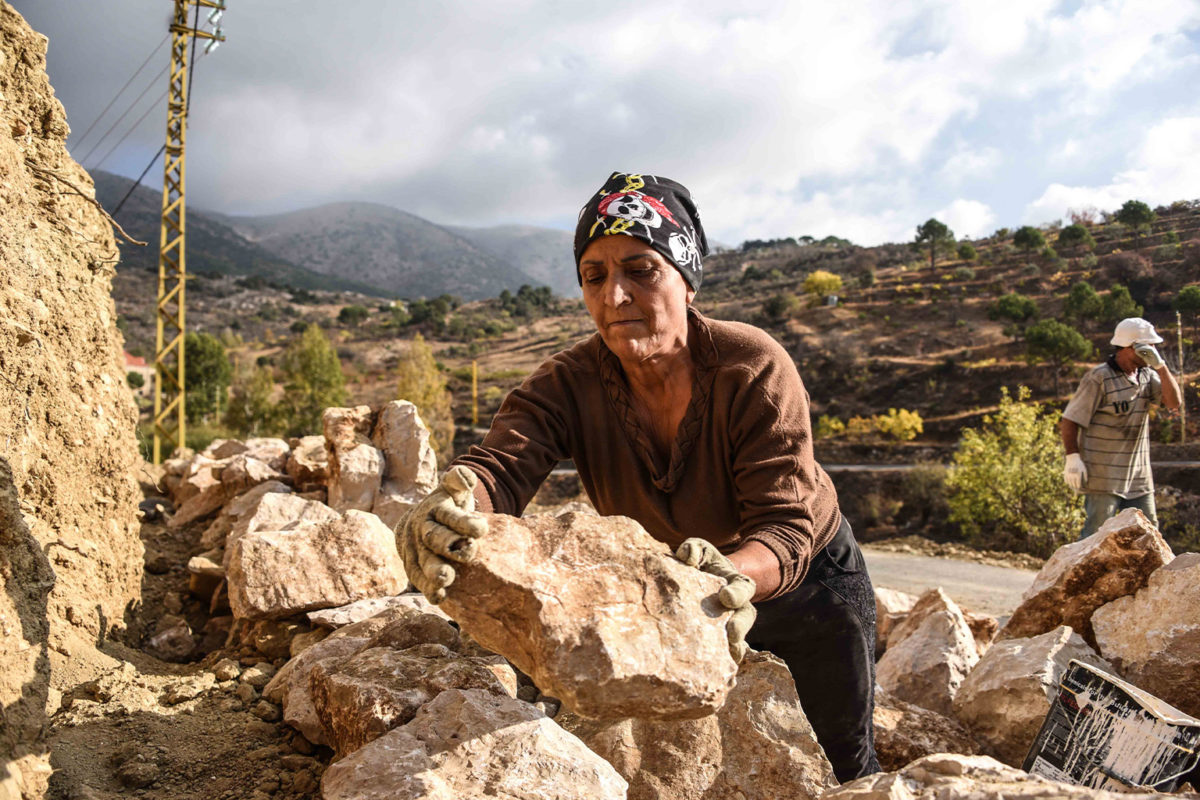The General Mine Action Program
“Preventing Landmines Injuries and Managing the Social Burden of Landmines in Lebanon”
The years of civil and regional (Middle East) conflicts as well as military activities have left Lebanon with a significant number of landmines and unexploded ordnance. In spite of the extensive mine awareness and demining efforts undertaken by the Lebanese Army since the end of the civil conflicts in 1990, it is still common for the Lebanese media to report crippling injuries or deaths from landmine related accidents.
In an effort to raise awareness, prevent injuries, and manage the resulting socio-economic burdens of landmines in Lebanon, WRF launched The General Mine Action Program in June 1998. This program was supported by the US government assistance program to Lebanon through the USAID and the Leahy War Victims Fund. The design of this pioneering program emphasized the integration of mine risk education awareness activities, information gathering, institutional strengthening, and demining related activities. This has allowed a breakthrough in the political, geographical, and sectarian barriers, thus reaching hundreds of thousands of landmine survivors and concerned community members.
The implementation of this program has entailed close coordination, collaboration, and partnership with native governmental, community, and international counterparts and stakeholders, particularly the National Demining Office (Lebanese Army), the Landmines Resource Center (University of Balamand) and other concerned governmental, non-governmental and community-based organizations, UN agencies, donor governments as well as several other agencies.
Reaching the Community:
WRF Mine Action Program aimed mainly at enhancing the knowledge of the Lebanese population about landmine risk in view of minimizing injuries and reducing casualties. This was possible through the implementation of Mine Risk Education Awareness activities which focused on transmitting messages about the dangers of landmines and risk minimizing behavior. This allowed people to apply safety practices and conducts in their daily life and thus promoted the reduction of casualties.
The Mine Action Program particularly aims to benefit:
-
Communities suffering from landmine infestation as well as individuals at risk of injuries from landmines and unexploded ordnance.
-
Individuals (and their dependents) who were injured or maimed by explosions of landmines or unexploded ordnance all over Lebanon.
-
Dependents of individuals who were killed by landmines or unexploded ordnance.
Program Contributions and Achievements:
(List the achievements in a more nice graphical way drop down fading (as per your expertise)
As it continues to make a difference in the lives of many, the WRF Mine Action Program in Lebanon has succeeded in demonstrating sustained development. Following is a list of achievements to date:
- Initiation of and support to an extensive range of community awareness and mobilization activities. WRF has been particularly involved in the National Mine Awareness Campaign implemented recently by the National Mine Awareness Steering Committee and the National Demining Office throughout the schools and communities of South Lebanon and West Bekaa. WRF will continue to support this campaign as it expands to Mount Lebanon
- Initiation of and support to a large number of mine risk education and professional training activities. WRF has worked on the development and production of an extensive array of landmine awareness materials. These activities have been instrumental in upgrading the knowledge and awareness of the Lebanese population about the risks of landmines and related issues.
- Establishing an extensive baseline data and information system about Gathering landmine victims and related issues, mainly through nationwide surveys conducted by the Landmines Resource Center (LMRC) at the University of Balamand (UOB). This has also provided opportunities for exchange of information among all concerned. In addition to this, the LMRC has succeeded in establishing an on going surveillance system that provide updated information on incidents and casualties and allows for the exchange of information among all concerned.
- Developing and strengthening the capacities of local counterparts allowing an improved implementation and management of activities for the provision of better quality services for all concerned.
